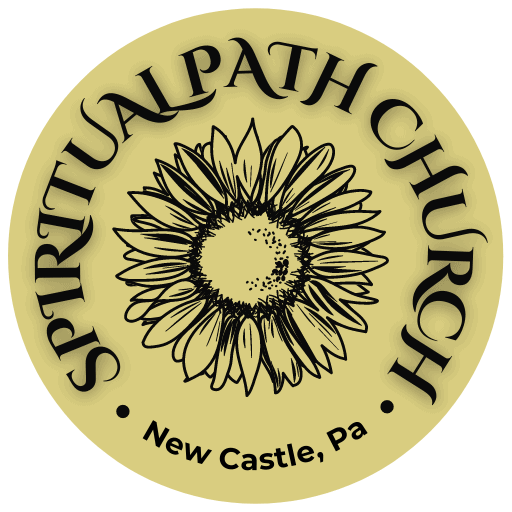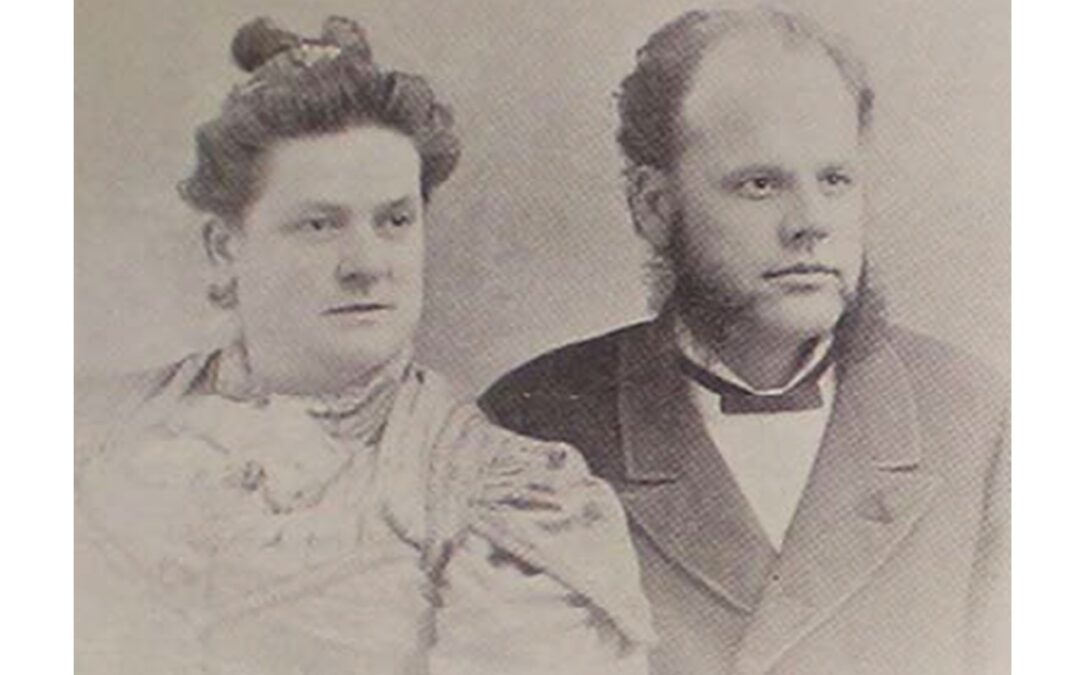
by iconicweb | Mar 25, 2024 | Karen's Korner
George Perkins was born in 1852 to Henry and Martha Perkins of Worcester, Massachusetts. He married Emiline Silvers, who was born in 1850 in New Jersey, in 1880. During the 1990s, the Perkins were active in in the Spiritualist community. George gave lectures in Boston and Chicago in 1891 and the next year he was joined by Emaline in Brooklyn, New York. At Maple Dell Camp it was stated that their participants included, “Brother George Perkins, musical director, speaker and test medium, and his good wife, who is also a good clairvoyant and test medium.”
In 1892, George published a new song book, The Spiritual Evangelist, that was “full of catchy melodies and appropriate hymns, for Spiritual meetings and circles.” By 1895, both George and Emaline were well-known platform test mediums who traveled through the northeastern United States, including Washington D.C.
At the 7th annual convention in Chicago, George was listed as musical director, a Spiritualist missionary and worked as an usher during the meeting. The Progressive Thinker, 28 October 1899, wrote, “I wish to say a word in commendation of Geo. F. Perkins, one of the most faithful and exemplary workers in this city, a man who stands without reproach and who is always faithful in the discharge of every duty that confronts him.” The article added, “Everyone who knows him and his wife knows there are no more faithful and conscientious laborers in the field, and also know that behind their mediumship is the element of character which is sometimes lacking in the more pretentious.”
During the late 1890s, Rev. George F. Perkins and Rev. Emaline Perkins led the Beacon of Light Spiritualist Church in Chicago. Two of their lecture topics were: “By Their Fruits Shall Ye Know Them” and “The Light of the World is Spirit.”
The Perkins moved west in 1900. In1901, George was listed as a singer, lecturer, and medium at the California state convention in San Francisco. Emeline passed in April of 1904 in San Francisco, and George resumed his lecture meetings at Odd Fellows Hall, San Fransico later that year. In 1905, he spoke and gave readings several times at the Union Spiritual Society in Oakland, presenting lectures on topics such as: “The Divine Three of the Origin of the Holy Trinity” and “Character.”
In 1906, George wrote to the Oakland Tribune, 25 Nov 1906, “Don’t you think the evangelists Simpson and Hibbard, at the Advent tent on Broadway, are over-stepping the boundary line of propriety and courtesy when they nightly abuse in the most emphatic language everybody and any organization that does not come under their particular endorsement? For weeks these men have used up all the dictionaries searching for words to express their contempt for every other religious denomination, more particularly the Roman Catholic and Spiritualists. And the President of the United States and our government do not escape their vitriolic tongues. Everyone has a right to advocate his conception of the truth and principles as set forth in the Bible, but I question any one’s right to insult and abuse all who do not conscientiously agree with them on these puzzling questions.”
George lived until at least 1930, when he was listed as a retired widower living in a rooming house in Oakland, California.
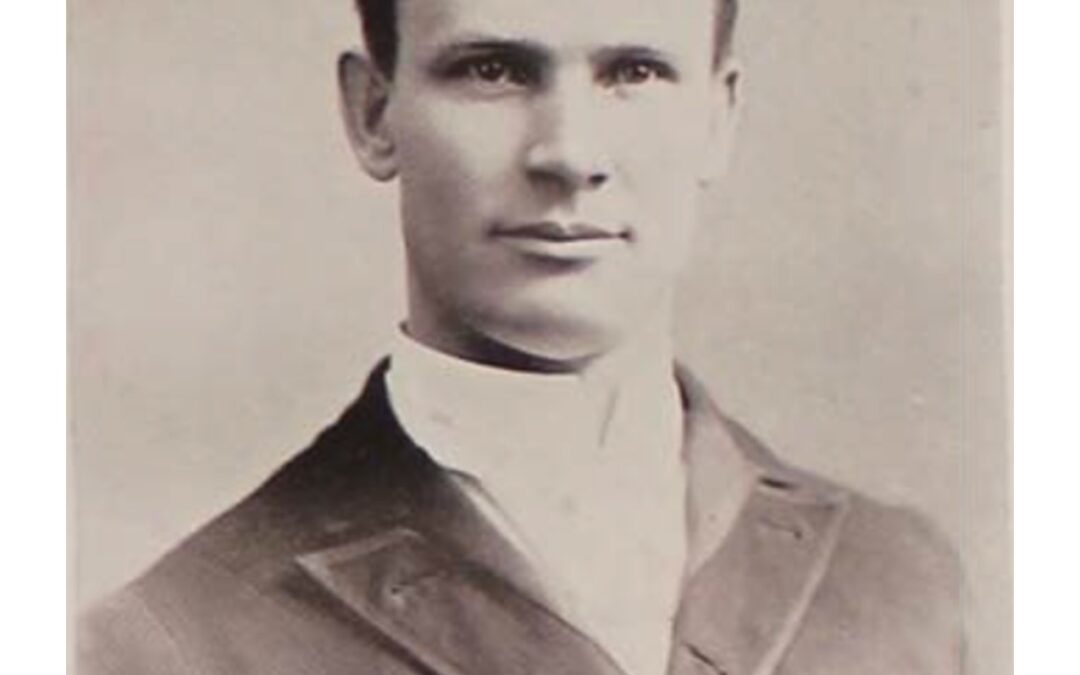
by iconicweb | Mar 25, 2024 | Karen's Korner
William A. Mansfield was born in 1859 to farmers Amos and Ann Mansfield in Ravenna, Michigan. He became one of the best-known slate writing mediums in the country. According to The Akron Beacon Journal, July 21, 1893, He “has an extensive acquaintance in spiritual circles and is honored and respected everywhere. He is yet a young man but has been before the public for 11 years in his chosen work. He spent two years in the Bryant & Statton business college in Buffalo, after which he went to Boston, where he spent two years in the college of oratory, graduating from that celebrated institution in 1889. He is now a junior in the Huron Street Hospital College at Cleveland. Mr. Mansfield has traveled extensively and has visited nearly all the large cities in the United States.” An1890 advertisement stated that: “William A. Mansfield. Medium for Independent Slate Writing, Hotel in Boston, Private sittings. Private Home Circles.”
William’s 1893 wedding was held at Brady’s Lake Spiritualist Camp according to the The Akron Beacon Journal, July 21, 1893. “The bright, warm sun, as it rose from the east yesterday morning, peeped through the tall and stately forest trees at Lake Brady, and cast occasional rays down on a happy, expectant throng, which was assembled to witness an interesting ceremony, one seldom celebrated at a summer resort. It was nothing more or less than a marriage ceremony, in which a well-known, popular and beloved member of the spiritual camp led to the altar a handsome, charming young girl from Michigan. The groom was Will. A. Mansfield and the bride Miss Lenno A. Moray, both of Grand Rapids, Mich.” His brother John Orton Mansfield was a groomsman. About 250 people attended.
A son was born to the couple in 1894 and a daughter in 1895. William presented lectures and conducted slate writing at Lily Dale, Grand Ledge Spiritualist’s Camp in Michigan, and Maple Dell Park in Mantua, Ohio in the 1890s. In 1897, at Maple Dell Park, he “gave a light séance for physical manifestation.” He spent the season at the camp.
William advertised in Light of Truth: “Homeopathic Treatment compounded clairvoyantly for each case. Send name, age, sex, leading symptoms for Free Diagnosis and ‘Methods of Cure.’” Another advertisement stated: “Dr Mansfield. Homeopathic treatment compounded clairvoyantly for each case. Send name, age, sex, leading symptoms for free diagnosis and methods of cure. Cedar avenue in Cleveland.”
By1900, William was a widower living with his daughter at his brother John’s home in Cleveland. He moved to Barberton, Ohio where he was health commissioner for 25 years. By 1930, he had been suffering from an illness for two years. The 1930 Akron Beacon Journal reported on William’s death at the age of 72 as a suicide, using exhaust fumes from his automobile.
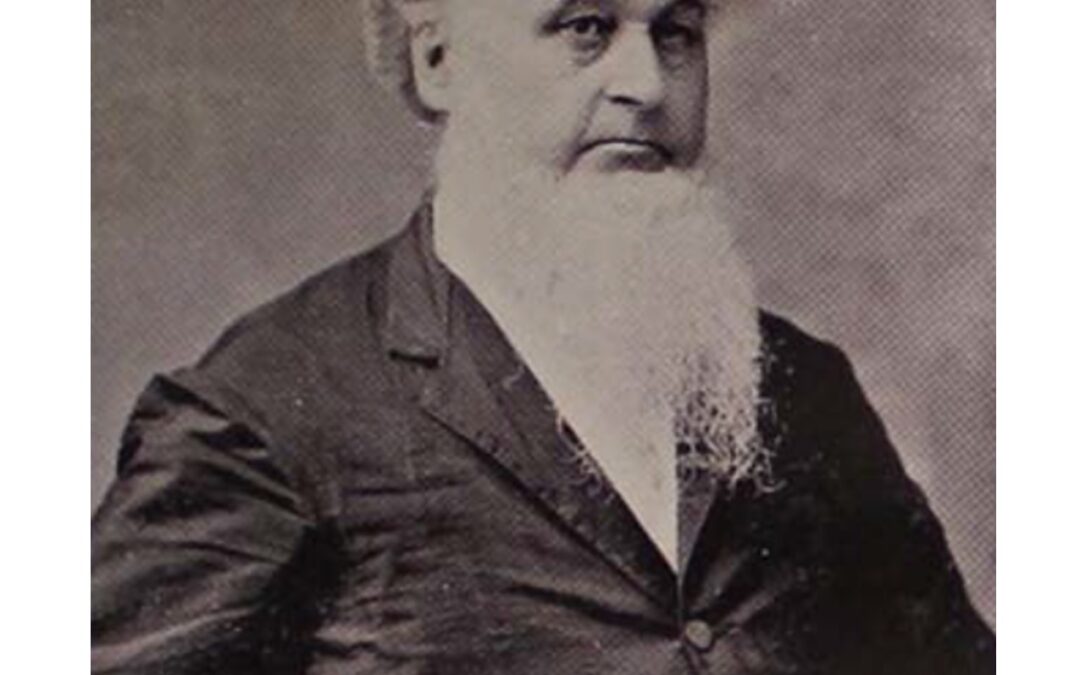
by iconicweb | Mar 25, 2024 | Karen's Korner
James V. Mansfield was born in Dudley, Massachusetts in 1817 to farmers Jera and Lucretia Mansfield. The family claimed to be related to Lord Mansfield who rid England of Slavery. James’ ability as a medium started at an early age when he began seeing spirits. He suffered from a sickness during his teen years and was thought to be close to death seven times. He was an avid reader during his sickness, but never received any schooling until after he recovered at the age of twenty. He attended an academic school for about six months, studying English. After that, he became a clerk at a country store until he was 22.
James married Mary Hopkinson in 1847 and they had three children. They endured many financial struggles, and he was impelled at times to travel in search of work. He taught penmanship in Virginia and the Carolinas before returning to the store where he worked for several more years.
After moving to Boston, James became a prominent member of the Spiritualist movement. He was listed in the fourth Annual Spiritualist Register in 1860, provided spirit communications through letter writing, and earned the title, “spirit postmaster.” Those who wished to communicate with the departed could have a séance with him in person or mail a letter to the spirit in care of Mansfield. In the latter case, he would provide answers to unopened letters. He granted sittings if they didn’t interfere with his regular work. After some time, he became so popular that he decided to make mediumship his business.
James left Boston to travel, visiting the major cities in the eastern United States. Then he went to the Pacific coast and remained there for three years. While he traveled, he wrote home to his wife. His letters to her totaled over 16,000 pages. From 1866-1869, he also responded to 31,000 letters, 21,000 which were written and sent free, without any payment or any demand for payment. According to the Banner of Light, “As the answers he sent are written very coarsely on printing paper, postage stamps form no inconsiderable item in these expenses, sometimes as high as twenty cents being put upon one letter….”
Mansfield was both admired and disdained for his “talents.” He also referred to himself as a “test medium,” providing free communications for skeptics. In 1885, he was studied by the University of Pennsylvania’s Seybert Commission, which was established to investigate spiritualist phenomena. After observing him, Dr. Horace Howard Furness of the Commission concluded in the official report that he was at best a charlatan.
Others stood by him. In the Banner of Light, 7 November 1885, Vol. 58, No. 8 it stated, “Of the many whom we have personally known to have tested his mediumship, we can refer to a no less experienced and accurate an observer then Rev. John Pierpont, who frequently, during his earth-life, held private seances with Mr. Mansfield and received such undoubted evidence of his mediumship as to go far toward firmly convincing him of the truth of Spiritualism.”
James Mansfield died 1899 in Ipswich, Massachusetts at the age of 82. He wrote to Mr. Jay Chaapel, “I have been trying to live for the last half century to make the world better from my having lived in it, but if so it remains to be seen….Forty-six years have I labored for Spiritualism, and have never rusted. I have written 700,000 communications in 15 different languages on paper five inches wide to three and a half feet in length, which, if pasted together, would have extended twice around the globe. My public labors have ended, though with few exceptions, I do write for packages from abroad occasionally. I have lost the sight of my right eye, have but partial use of my right arm, and my lower limbs have become almost useless from paralysis. I am 82 years old, have no fear of death and have been looking forward for the change the last ten years.”
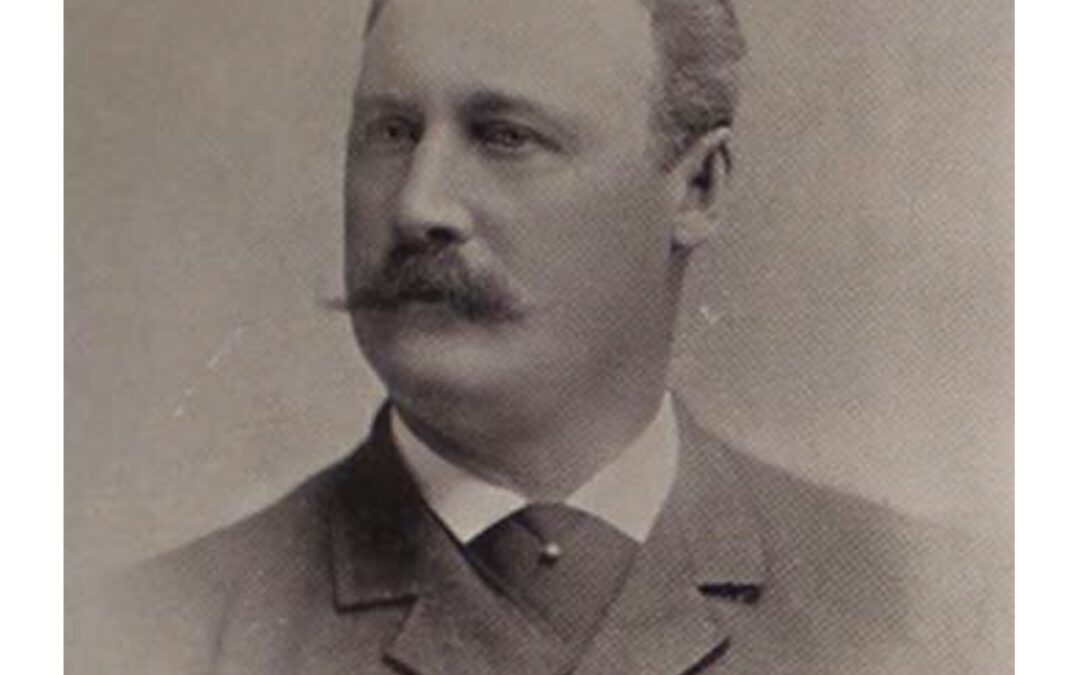
by iconicweb | Mar 25, 2024 | Karen's Korner
Theodore J. Mayer was born in Geneva, Switzerland in 1846 and received his education in public schools and colleges. After he graduated, he worked for a large bank as a correspondent and bookkeeper. He immigrated to the United States in 1866, married Susanna Hitz in 1876, and they had two sons. Susanna died soon after her second son’s birth. Theodore continued to live with the Hitz family and worked at W. M. Galt and Co., being in charge of the wholesale flour department. He later became a full partner in the business.
Theodore was one of the members of the committee who started the movement to create a national Spiritualism association. He was elected Treasurer of the National Spiritualists’ Association (NSA) of the United States several times and was Vice President of the First Spiritual Association of Washington D. C. In 1900, while treasurer of the NSA, he offered to donate the house which functioned as the national headquarters providing they raised the $10,000 needed “to carry on the National work.” He was also instrumental in buying a sanitarium from A. P. Spinney to house the sick.
According to Theodore’s obituary in the Washington Evening Star, 13 March 1907, “Mr. Mayer had been actively engaged in the work of upbuilding this city and increasing its prosperity since he came here in 1866. He usually took a leading part in philanthropic efforts and was especially interested in the welfare of east Washington, in which his home was located. He was nearly sixty-one years of age. It is remarked that he retained his mental and physical vigor to a remarkable degree, and until stricken by the ailment which ended in his death was an active man of affairs. He was a member of the Masonic fraternity, a director of the Eastern Dispensary and Casualty Hospital, and also a member of the directorate of the Central National Bank, the Union Trust Company and the George Washington University. For fifteen years he had been president of the Swiss Benevolent Association, and as such is said to have ‘carried sunshine into many saddened homes.’”
According to the Sunflower, 30 March 1907, Mayer “did not forget to bless and honor Spiritualism in the distribution of his estate. As is well known, Mr. Mayer was a self-made man. He did not acquire any of the large fortune he left, by inheritance or gift, but he made it by unfailing toil of hands and brain and by his judicious investments. He was essentially a clear-cut mentality, sound financier and staunch Spiritualist.” He deeded three houses to the NSA upon his death.
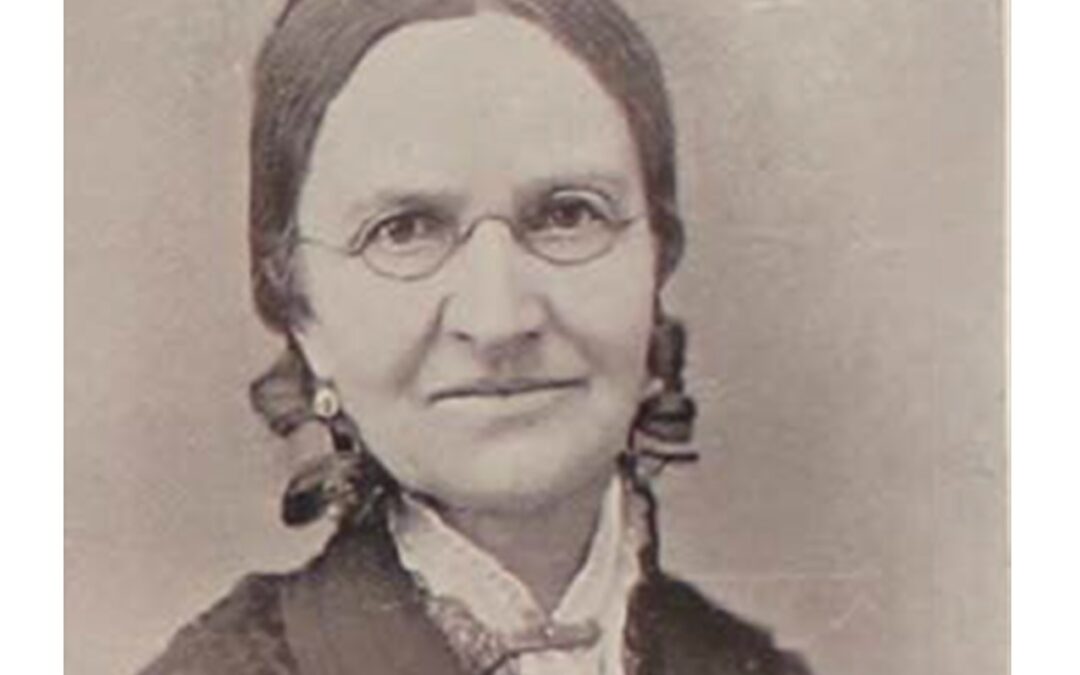
by iconicweb | Mar 18, 2024 | Karen's Korner
Aurelia Desiree Tolman was born in 1820 to Elijah and Florilla Tolman of Erie County, New York. Her father was one of the first settlers of the county and purchased a large tract of land there. In 1839, Aurelia married Dr. Harvey B. Marvin who had been born into a farming family in Vermont. By 1850 they were living in Evans, Erie County, New York. They had four children: Frances, Horace, LaDor and LaRay.
The family moved to Grand Rapids, Michigan. Aurelia and her daughter, Francis, were both practicing mediums, but Francis died in 1866 and Harvey died in 1870. By then, Horace, LaRay and LaDor were practicing homeopathic physicians and Spiritualists. Aurelia was one of the early women physicians, listing herself as a mental and physical healer. She continued her practice into the 1890s and was listed in the 1895 Grand Rapids Directory as Aurelia D. Marvin (widow of Harvey B. Marvin) physician, living at 264 E. Bridge Street in the city.
Aurelia Marvin died in 1903. In the Progressive Thinker, August 22, 1903, Lyman C. Howe wrote of Mrs. Dr. Aurelia Dewey Marvin whom he had known for forty years. He referred to her as a “remarkable psychic and healer of the sick.” Her husband graduated as a regular physician but was one of the first in America to adopt homeopathic medicine. He was practicing in Buffalo when the the Fox sisters became prominent. “Mrs. Marvin became a medium, had visions, and soon developed remarkable powers for healing the sick by laying on of hands.”
One spirit, Howe said came to her and told her to change her pastor’s pro-slavery thoughts. “She had a long interview with her pastor, and was so inspired that, with the help of the spirits, she penetrated the prejudices of the preacher and completely revolutionized his political creed and all his preaching on the subject of slavery was reversed.”
Howe continued, “I knew a young man in Laona, who was paralyzed from his hips down, by a sunstroke, while in the army, serving his country. Physicians could not help him. As a last resort, and a forlorn hope, he went to the home of Dr. Marvin, then in Erie County, N. Y. He stayed four weeks, during which time Mrs. Marvin treated him without medicine, and he returned home perfectly cured. Many hundreds if not thousands, could testify of her powers from personal experience. I have been one that she has blessed in that way.”

